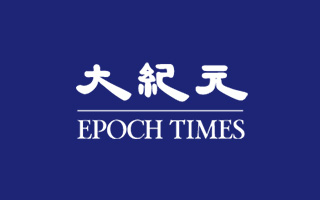【大纪元3月23日讯】16年前,当我还是一个在北京大学历史系读书的一年级学生的时候,是卢梭﹑洛克这些欧洲思想家的著作给了我对民主自由理念的启蒙,是法国大革命的历史给了我理想主义的热情。1989年中国爆发了大规模的学生运动,当年也正好是法国大革命200周年。欧洲在人类历史上重大贡献之一,就是使民主自由的理念成为人类社会的不可动摇的基础。这,本来应当是欧洲的骄傲。
16年前,中共用常规战争的规模镇压手无寸铁的学生,当时的欧盟集体决议,对中国政府进行武器禁运以表达愤慨,这让我们这些已经受到逮捕﹑监禁﹑流亡等等命运的学生深受鼓舞,让我们知道,在国际社会,是有正义作为国际关系的基础的。然而,今天,我们惊诧地听到,欧盟已经要决定解除当年的这项禁令了。
是当年发表禁令的条件已经不存在了吗?当然不是。有的欧洲政治领袖说,中国的人权状况已经有了进步,这完全是对中国实际状况的不了解。不错,中国的经济进步是有目共睹的,但是在政治方面,应当说是有退步的。以我个人为例,1988年的时候我在北京大学草地上组织民主沙龙,当局虽然不满,但是并未强行阻止,但是今天,原北大学生杨子立等四人私下组织关于政治问题的讨论,不仅被判重刑,而且在狱中受到虐待。请问,这是进步还是退步?
有人说,六四问题已经过去了。事实是这样吗?当然不是。今天,大批原来参与六四的人滞留海外不能回国,我本人就是一个例子。我原来持有的中国护照,5年期限到了,中国使馆拒绝给我延期,剥夺我做一个中国人的权利。这都是因为我参与了六四,对于六四受到镇压的一方来说,中共政权对我们的打击从来没有中断过。今天在中国,公开悼念六四死难者都不是被允许的事情。我们有什么理由说,已经具备解除对华武器禁运的条件了呢?
我充分理解与中国保持接触的重要性,事实上,我本人支持过美国给中国贸易最惠国待遇,支持过中国获得奥运会主办权。但是,对华输出武器是另一回事。保持与中国的贸易关系,得到好处的是中国老百姓;而卖武器给中国,得到好处的,只是那些军火商和政府官员,对促进中国公民社会的发展,对提高中国民众的生活水平没有关系。我不明白为什么在六四问题仍然没有解决,在中国人权状况不进反退的情况下,欧盟却坚持要解除对华武器禁运。
欧洲在我的心目中,代表着人类对自由的追求的发源地,欧洲得到的尊重就来自于对这种传统价值的捍卫。如果中共至今仍然坚持当年屠杀学生是正确的───事实上他们正是如此───的时候,欧盟却坚持送给屠夫武器,这样的欧洲,还值得尊敬吗?
欧洲,请不要让我失望。
转载自3月23日的英国《金融时报》
英文:
History tells us to keep the arms ban on China
By Wang Dan
Published: March 22 2005 20:03 | Last updated: March 22 2005 20:03
The likelihood that the European Union will delay plans to lift its embargo on arms sales to China is a welcome sign of pressure from various quarters to maintain it. But the push within Europe to lift the ban has acquired momentum, and the issue is bound to return high on the agenda of EU leaders soon.
That is why it is important to remember why the EU imposed its embargo in the first place: in response to the June 1989 massacre of pro-democracy demonstrators around Beijing’s Tiananmen Square. Ironically, perhaps, it was classical European thinkers such as Jean-Jacques Rousseau and John Locke whose ideas of democracy and liberty enlightened me 16 years ago, when I was studying history at Beijing university. One episode of history that ignited my idealistic passion was the French revolution; its 200th anniversary coincided with the 1989 Chinese student protests. Europe has made an important contribution to history by firmly grounding its societies in ideals of democracy and freedom. This should make EU leaders proud.
When the EU adopted its resolution 16 years ago to ban weapons sales to China, it was an expression of moral outrage at the Chinese government’s use of the military against peaceful demonstrators. Such reactions from the international community both moved and inspired us – the student leaders who were arrested, imprisoned, or exiled at the time. They showed us that justice remained a fundamental principle in international relations. In this context, our concern about the EU’s move to lift the embargo is surely understandable.
The arguments in Europe in favour of lifting the ban imply – or in some cases directly suggest – that the appalling human rights conditions that prompted the embargo in 1989 have been rectified. That is not the case. Some European leaders have even commended China for progress in human rights. Such claims reveal ignorance of the realities in China. No doubt everyone has watched the country’s economic progress, but in political reform China has gone backwards.
Take my own example. In 1988, the government did not force me to disband, although it was unhappy with, the pro-democracy group I organised, which often met openly on campus at Beijing university. Today, however, when Yang Zili, a Beijing university student, and three other youths held private meetings to discuss political issues, they were sentenced to many years in jail and subjected to abuse in prison. Is this progress or regression?
Some European leaders have referred to the June 4 massacre as belonging to “another era”. This is not factually correct. Today, many participants in the 1989 democracy movement are in exile overseas and barred by the Chinese government from returning to their country. My own story is, again, an example. After my Chinese passport expired, the Chinese embassy in America refused to extend it, depriving me of my citizenship rights – simply because I participated in the 1989 movement. Today, the government still prohibits anyone from publicly mourning those killed in the protests. There seems little evidence that conditions are even nearly ripe for lifting the EU’s weapons ban.
I understand the importance of engaging China. I personally supported the US move to grant China “most favoured nation” trading status, and also the country’s bid to host the Olympic Games. But selling weapons to China is an entirely different matter. From solid trading relations, ordinary Chinese people can benefit; but weapons sales only benefit the officials involved in the arms deals and the Chinese government. They do nothing to help development of Chinese civil society or raise living standards of ordinary Chinese. It puzzles me why some EU leaders want to lift the arms ban while the Chinese government still refuses to deal with questions of truth and accountability concerning the June 4 massacre, and while human rights conditions in China continue to deteriorate.
To me, Europe symbolises the origin of humanity’s quest for freedom. My respect for Europe comes from its protection of democratic traditions and the values of freedom. As China’s regime still defends the slaughtering of peaceful student protesters, the notion that the EU might be willing to make more weapons available distresses me greatly; I can only hope that Europe will keep our hopes alive.
The writer, a Chinese student leader in the 1989 democracy movement who was imprisoned for seven years for his political activism, was exiled to the US in 1998 and is currently studying for a doctorate in history at Harvard University
(http://www.dajiyuan.com)


